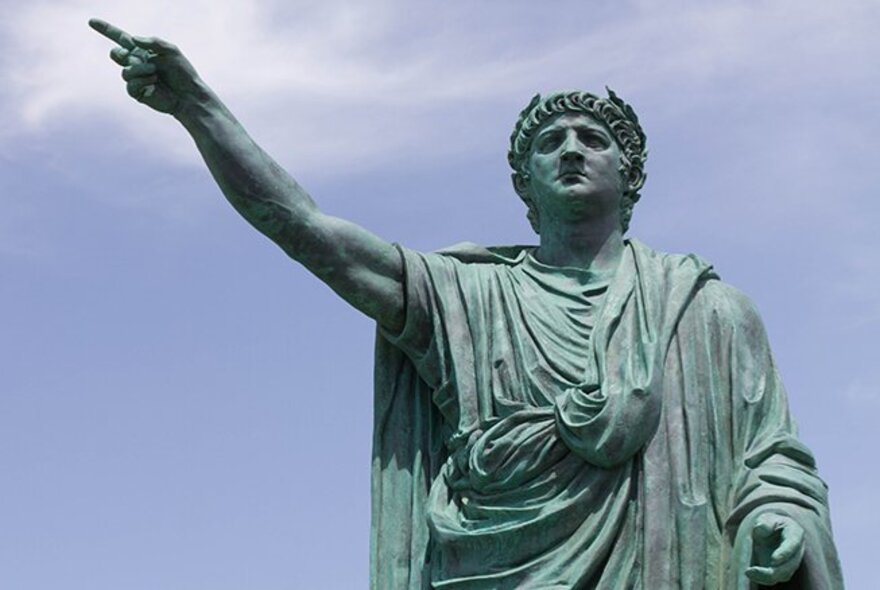In 68 CE, the Roman emperor Nero, took his own life. He was facing revolts led by his generals and been declared a public enemy by the senate. He executed multiple senators, murdered a few family members, been forced to put down conspiracies and may even have been responsible for the fire which devastated Rome in 64CE. In the next twenty years, at least three men claiming to be Nero appeared in locations as far afield as Greece and Parthia. What motivated these pseudo-Neros and what were their fates?
Dr Rhiannon Evans is Associate Professor in Classics and Ancient History at La Trobe University, where she teaches Latin and Ancient Roman culture. Rhiannon is interested in Roman literature of the first centuries BCE and CE and is currently working on Julius Caesar’s account of the conquest of Gaul. She has published a book on the Golden Age and Utopianism in Roman literature.
Part of La Trobe Classics in the City 2025 - Classical Cons: The Art of the Scam in Ancient Greece and Rome







